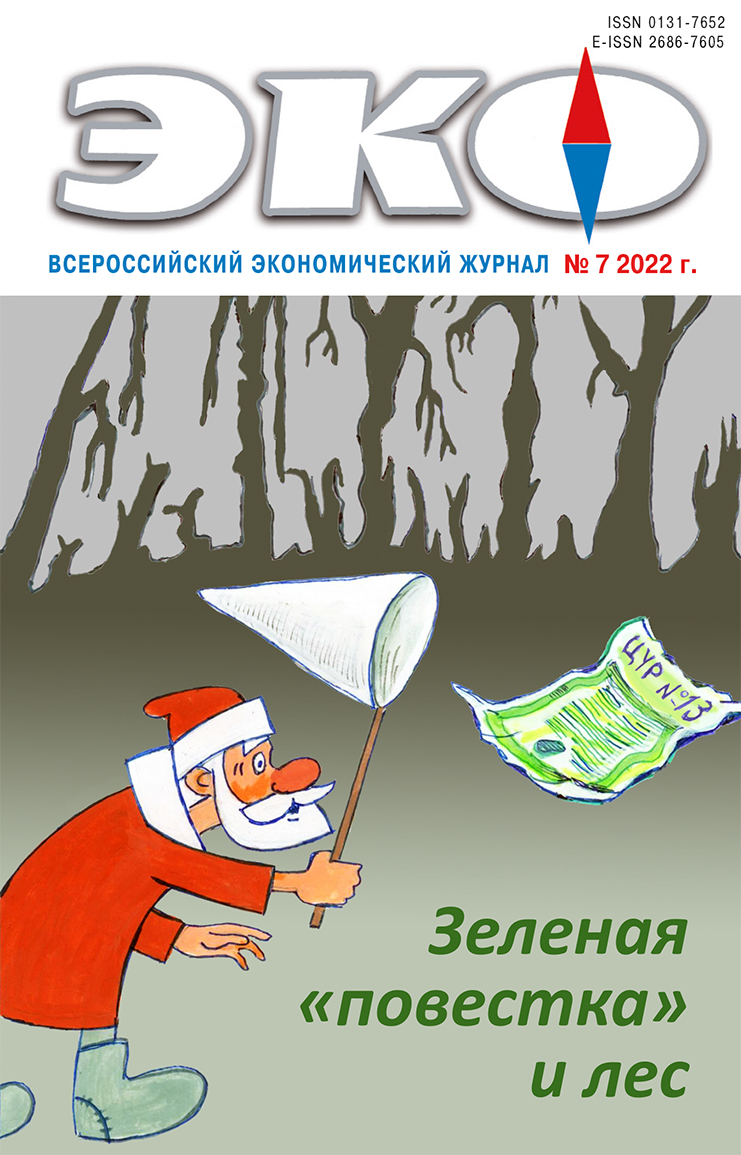DEBATES
Published 2022-07-05
Keywords
- international rankings; business climate; government efficiency; Doing Business; Global Competitiveness Index (GCI); Worldwide Governance Index (WGI); Fragile State Index (FSI), strategic planning
How to Cite
1.
Makarov А, Ponomarev Ю. International Rankings – Friends and Foes in the System of Strategic Planning. ECO [Internet]. 2022 Jul. 5 [cited 2026 Feb. 19];52(7):146-68. Available from: https://ecotrends.ru/index.php/eco/article/view/4475
Abstract
International ratings have played an increasingly important role in national strategic planning systems in recent decades, including in Russia, but their use requires accuracy, taking into account the existing shortcomings and possible biases in assessments. The paper considers general problems of international ratings’ effectiveness, drawbacks of Doing Business (DB) rating, and considers alternative international ratings (GCI, WGI, FSI). It is shown that the successful promotion of Russia in the Doing Business ranking cannot be sufficient to assess the improvement of state regulation efficiency, a broader improvement of socio-economic institutions and the use of other methods of assessment are needed.References
- Истерли У. Тирания экспертов. Экономисты, диктаторы и забытые права бедных. М.: изд-во Института Гайдара, 2017.
- Макаров А. В. Новации градостроительного законодательства – между инклюзивными и экстрактивными институтами // ЭКО. 2022. № 2. С. 93–114. DOI: 10.30680/ECO0131–7652–2022–2–93–114
- Расторгуев С. В. Позиционирование страны методом рейтингования: научный анализ или технология манипуляции? // Гуманитарные науки. Вестник Финансового университета. 2017. № 1(25). С. 13–17.
- Слободенюк Е., Аникин В. Где пролегает «черта бедности» в современной России? // Вопросы экономики. 2018. № 1. С. 104–127. DOI: 10.32609/0042–8736–2018–1–104–127
- Görgens, M., Zall, Kusek, J. (2009). Making monitoring and evaluation systems work a capacity development toolkit. World Bank: Washington, DC.
- Kaufmann, D., Kraay, A., Mastruzzi, M. (2007a). The worldwide governance indicators project: answering the critics. Policy Research Working Paper; No. 4149. World Bank: Washington, DC.
- Kaufmann, D., Kraay, A., Mastruzzi, M. (2007b). Growth and governance: A reply. The Journal of Politics. Vol. 69. No. 2. Pp. 555–562. DOI: 10.1111/j.1468–2508.2007.00550.x
- Kaufmann, D., Kraay, A., Mastruzzi, M. (2010). The worldwide governance indicators: methodology and analytical issues. Policy Research Working Paper, no. WPS5430. World Bank: Washington, DC.
- Lopez-Acevedo, G., Krause, P., Mackay, K. (2012). Building better policies: The nuts and bolts of monitoring and evaluation systems. Washington, DC: International Bank for Reconstruction and Development.
- Razafindrakoto, M., Roubaud, F. (2006). Are international databases on corruption reliable? A comparison of expert opinion surveys and household surveys in Sub-Saharan Africa. Manuscript, IRD/DIAL.
- Zhenwei, Qiang, C., Wang, H., Xu, L.C. (2020). Heterogeneous effects of the de jure and de facto business environment: findings from multiple data sets on the business environment. Policy Research Working Paper. No. 9115. World Bank: Washington, DC.

